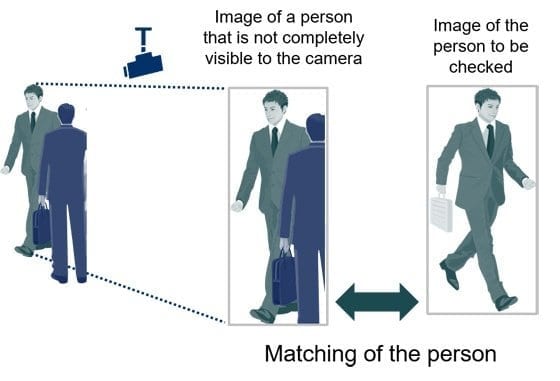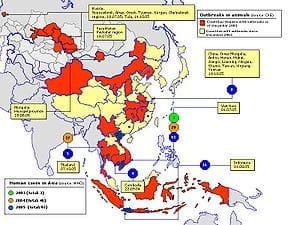
It’s a troubling image, one that some fear might not be limited to works of fiction.
Consider this scene in “The Circle,” Dave Eggers’s new novel that imagines a dystopian future dominated by an omnipotent social networking company: Mae, the young protagonist, tries to unplug from her hypernetworked life to go on a covert, solitary kayaking trip. But when she returns to shore, she is greeted by police officers who have been alerted to her excursion by several hidden cameras. She quickly realizes that very little in her life isn’t recorded, tracked and analyzed.
It’s a troubling image, one that some fear might not be limited to works of fiction. In fact, some elements of Mae’s scenario have emerged recently in the news. There was the report that the National Security Agency can create sophisticated maps of some people’s personal information and social connections. There were the recent changes to Facebook’s privacy settings that will no longer allow users to hide their profiles from public searches. In addition, Google recently revealed that it was considering using anonymous identifiers to track browsing habits online, raising hackles among privacy advocates who have described it as “the new way they will identify you 24/7.”
And, at the same time, drones are becoming commonplace — used by the government in counterterrorism efforts and by hobbyists — prompting discussions about the long-term impact on privacy.
These developments, among others, have spurred the creation of a handful of applications and services intended to give people respite and refuge from surveillance, both online and off. They have a simple and common goal: to create ways for people to use the Internet and to communicate online without surveillance.
Nadim Kobeissi, a security adviser in Montreal who works on an encrypted-message service called Cryptocat, said the security and hacker circles of which he is a part have long suspected that the government is listening in on online conversations and exchanges but “have never been able to prove it.” He added: “It’s been a worst-case-scenario prediction that all turned out to be true, to a worrying extent.”
If nothing else, the N.S.A. leaks and disclosures have brought these issues front and center for many people, myself included, who are troubled by how much of our daily and online interaction is concentrated in and around a handful of companies that have funneled data to the N.S.A.
“It’s sad that this is the proverbial kick in the butt that needs to bring awareness to this concept,” said Harlo Holmes, who works for the Guardian Project, a group that is building several anti-surveillance and privacy applications.
Go deeper with Bing News on:
Surveillance
- US surveillance finds low incidence, limited treatment options for carbapenem-resistant A baumannii
More than 75% of carbapenem-resistant A baumannii isolates collected from patients in 9 states were defined as difficult to treat.
- Mother seeking surveillance footage after assault in Portland's Roosevelt High School
The mother of a Roosevelt High School student intends to file a lawsuit against the district after her daughter was hit numerous times in the hallways of Roosev ...
- Surveillance video released after trailer of Bibles burned outside Global Vision Bible Church in Wilson County
WILSON COUNTY, Tenn. (WKRN) — More than a month after a trailer full of Bibles was set on fire outside of a Wilson County church, authorities shared surveillance footage of a vehicle fleeing the scene ...
- Surveillance footage shows thieves returning to steal car for 2nd time in 2 days in Henderson
A Henderson family is still reeling from a recent theft of their car on Monday, only for the perpetrators to return the next day.
- N.S.A. Disclosure of U.S. Identities in Surveillance Reports Nearly Tripled in 2023
The sharp increase of so-called unmaskings, to more than 31,300 times, arose from attempts by foreign hackers to infiltrate the computer systems of critical infrastructure.
Go deeper with Google Headlines on:
Surveillance
[google_news title=”” keyword=”surveillance” num_posts=”5″ blurb_length=”0″ show_thumb=”left”]
Go deeper with Bing News on:
Anti-surveillance
- Big Business’ Plans to Put 30 New Eyes on Downtown Streets Raise Data Privacy Concerns
The Downtown Seattle Association (DSA) wants to prop up 30 digital kiosks powered by IKE Smart City to run advertisements, display maps, and to emit free Wi-Fi. The kiosks' ads would raise a projected ...
- London Marathon 2024: How to Watch Live From Anywhere
Long distance running fans fans in the UK can watch the 2024 London Marathon live on free-to-air channel BBC 1. This also means viewers in the UK will be able to stream the event for free on BBC ...
- World Snooker Championship 2024: How to Watch Live From Anywhere
Snooker fans in the UK can watch live coverage of key games from the 2024 World Championship on free-to-air broadcaster the BBC, with coverage spanning BBC One, BBC Four and the BBC Red Button service ...
- Telegram Founder Says Crypto-Like Communication Devices Could Thwart Government Spying
Pavel Durov, founder of the encrypted instant messaging app Telegram, believes that growing government surveillance will drive innovation in secure Telegram Founder, Pavel Durov, believes that growing ...
- The US isn’t just reauthorizing its surveillance laws – it’s vastly expanding them
A little-known amendment to the reauthorized version of Fisa would enlarge the government’s surveillance powers to a drastic, draconian degree ...
Go deeper with Google Headlines on:
Anti-surveillance
[google_news title=”” keyword=”anti-surveillance” num_posts=”5″ blurb_length=”0″ show_thumb=”left”]











